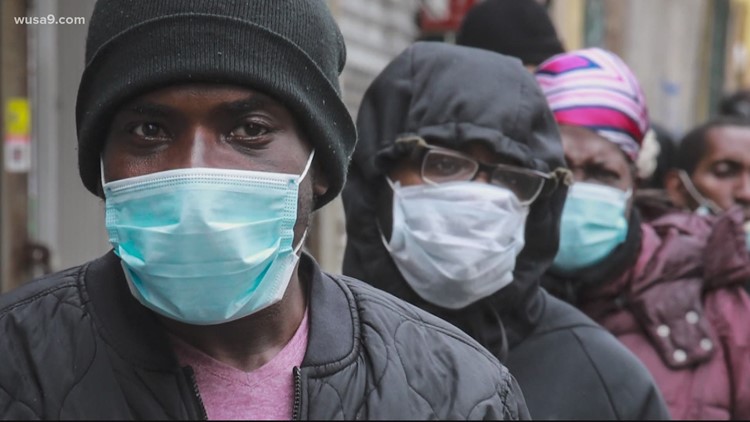WASHINGTON D.C., DC — COVID-19 uncovered weaknesses in our health system, like disparities among communities of color. Now doctors are hoping the pandemic can help bring change to the industry of medical science. The issue of diversity in clinical trials has long been a focus for our nation, but how far have we come? We’re taking a deep dive into the issue of diversity in clinical trials.
Our sources:
- The National Center for Biotechnology Information - a division of NIH, The FDA
- Jennifer Jones-McMeans, Divisional VP of Global Clinical Affairs for the healthcare company Abbott
- Dr. Hugh Mighty, the Dean of the College of Medicine at Howard University
“We've failed in the sense of being inclusive,” said Dr. Mighty, “COVID has really exposed a great disparity nationwide and it's going to be up to us as professionals and policymakers to not let that go away”
The lack of diversity in medical research is well-documented and first addressed by the nation in 1993. That’s when Congress passed the NIH Revitalization Act, mandating the National Institutes of Health include more women and minorities in its research.
In 2015, a peer-reviewed paper published through NCBI, a division of NIH, acknowledged “a promise yet to be fulfilled.” According to the research, more than 2 decades after the bill “less than 2% of more than 10,000 cancer clinical trials included enough minority participants”
According to this FDA analysis of clinical trials between 2015 and 2019 the racial data broke down this way:
- 76% White
- 11% Asian
- 7% Black or African American
- 5% other
- 1% Indigenous people
“It is disappointing to see that over decades, we've seen this disparity,” said Jennifer Jones-McMeans. “I'm not discouraged, because there are many of us who are in positions that we can actually help pivot the change. Patients need to be seen by physicians, nurses, researchers that look like them sound like them, give them that access. The only way to do that is to invest in the training of the next generation.”
Among Abbott’s investments is $1 million in scholarships for Howard University medical students to pursue clinical trial work.
“People of color, African American, Latino, Native American, they are disproportionately impacted by diseases,” explained Jones-McMeans. “In order for us to test the safety and efficacy, we must include the patients that are burdened by the disease.”
Dr. Mighty said there is a long-standing history of clinical trials that created distrust in some communities of color including the infamous Tuskegee Syphilis trials, but he says it’s up to medical professionals to change that.
“It's going to take a while to build trust,” said Dr. Mighty. “You got to stay with it. You got to be persistent. You have to be intentional that ‘yeah, we want you in the trial because ultimately, it will benefit you and everyone who looks like you.”



